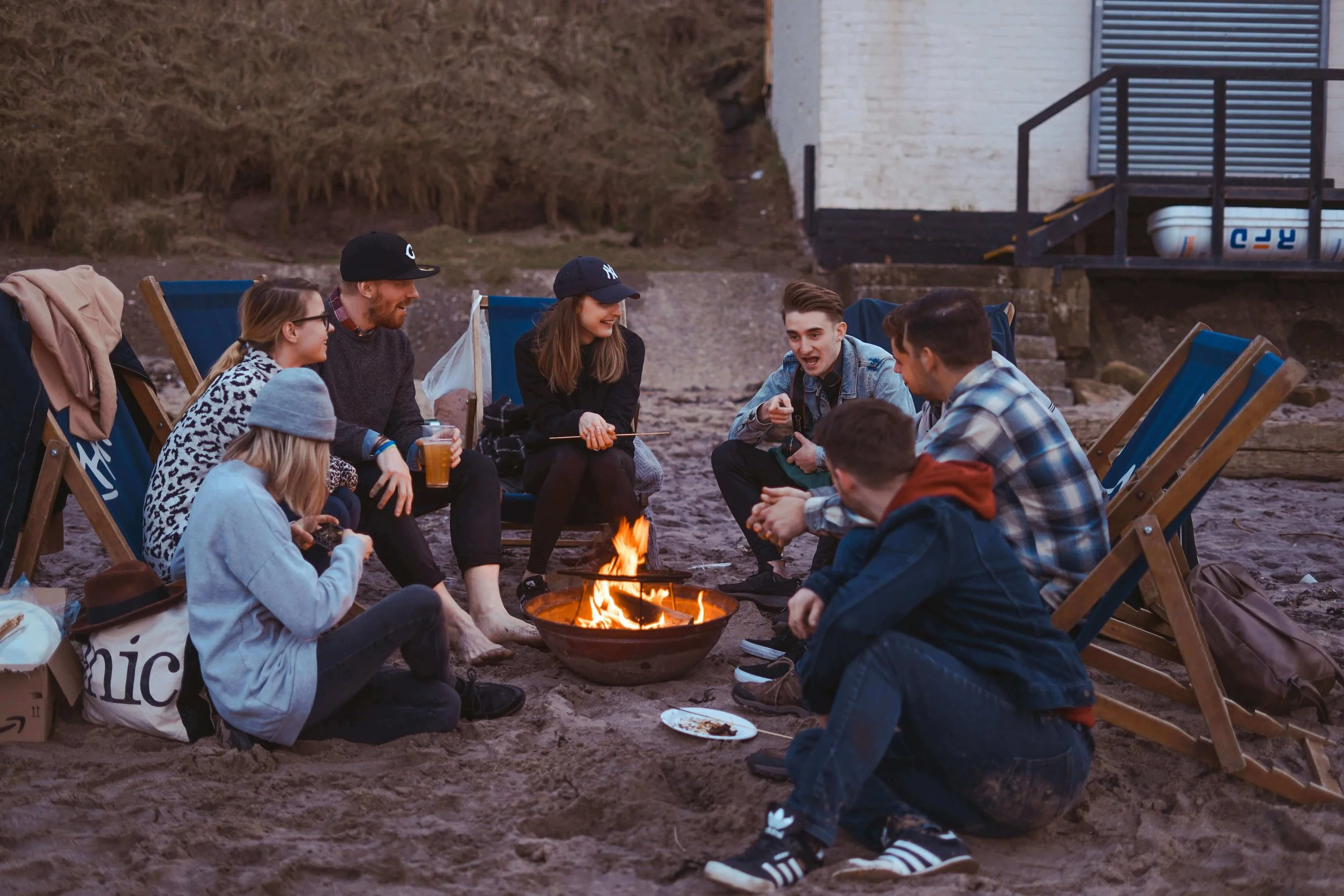Creating Author Community Through Collective Rest
Part 5 of the “We Will Rest” series
How Competition Kills Creative Collaboration
Three years ago, I watched a Twitter thread that made my heart sink.
A debut author had shared her excitement about her first book deal. Instead of celebration, the replies filled with barely concealed resentment.
"Must be nice to have connections."
"Guess we know who got lucky."
"Some of us are still waiting for our 'big break.'"
The author, crushed by the response, deleted the thread and later told me she felt guilty for months about her success.
Meanwhile, dozens of other writers had missed the chance to celebrate a milestone that could have inspired their own journeys.
This is what competition culture does to creative communities—it turns every victory into someone else's defeat, every celebration into a reminder of what others lack.
But what if there was another way?
What if author community was built on collective generosity and rest rather than competition?
What if supporting each other's success became a form of creative restoration?
The Scarcity Myth That's Poisoning Author Community
Publishing has sold us a lie: there are only so many book deals, so many readers, so many spots on bestseller lists. If another author succeeds, there's less success available for you.
This scarcity mindset turns every interaction with fellow authors into a subtle competition.
We compare word counts, book sales, social media followers, and speaking engagements.
We measure our worth against other people's highlight reels and wonder why we never feel good enough.
But here's what scarcity thinking costs us:
Creatively
Competition kills collaboration.
When you see other authors as threats, you miss opportunities for cross-pollination of ideas, joint projects, and creative inspiration.
Emotionally
Constant comparison is exhausting.
You're always either superior (which feels hollow) or inferior (which feels terrible). Neither state serves your creativity.
Professionally
The most successful authors I know got there through community, not competition.
They share opportunities, recommend each other for speaking gigs, and genuinely celebrate each other's wins.
Spiritually
As Tricia Hersey, author of We Will Rest! The Art of Escape, writes about how "Loving ourselves and each other deepens our disruption of the dominant systems."
But when we compete instead of connect, we're reinforcing the very systems that exhaust us.
What Collective Rest Looks Like for Authors
Shared Vulnerability Instead of Performance
Traditional author networking events feel like performance competitions—everyone trying to impress everyone else with their productivity, their platform, their progress.
But what if we gathered to share our struggles instead of our successes?
Author Example: Two romance writers started what they call "Struggle Sundays"—monthly video calls where they share what's actually hard about their writing lives. Not seeking advice or solutions, just witnessing each other's challenges. Both report feeling less isolated and more energized in their individual work.
Collective Dreaming Sessions
In We Will Rest! The Art of Escape, Hersey guides audiences in "Collective Daydreaming activation that taps into community care techniques."
Authors can do this too—gathering not to critique each other's work, but to dream together about possibilities.
What would it look like to spend an hour with fellow writers just imagining?
What if your characters met their characters?
What if you collaborated on a world that belonged to all of you?
What if you dreamed together about the kind of publishing industry you want to create?
Mutual Rest Accountability
Instead of productivity accountability partners, what about rest accountability partners?
Authors can check in not about word count, but about whether you're honoring your creative rhythms, taking breaks, and treating yourself with kindness.
Case Study: I became "rest buddies" with another author after meeting at a conference. We text each other permission to take breaks: "Just gave myself an hour reading break and hope you can too!" "Decided to take a nature walk—and look at the cute flowers I found." While not the goal, this system has also helped me become more productive because I’m more rested.
Moving From Competition to Collaboration
The Abundance Mindset Shift
Hersey reminds us that "We are beautiful. We are enough." This applies not just individually, but collectively.
There are enough readers for all of our books. There are enough opportunities for all of our careers. Success is not a zero-sum game.
When you truly believe in abundance, other authors' success becomes inspiring rather than threatening. Their wins prove that good things are possible, not that good things are taken.
Practical Collaboration Ideas
Cross-Genre Inspiration Sessions
Fantasy writers and contemporary romance authors sharing what they admire about each other's genres. Literary fiction authors and thriller writers exploring what they can learn from each other's approaches.
Skill Sharing Circles
One author teaches social media strategy, another shares query letter wisdom, a third explains how they set boundaries with their editor. Everyone gives and receives.
Collective Reading Projects
Choose books together, not to analyze craft, but to experience stories as readers. Discuss what moved you, what surprised you, what made you remember why you love books.
Resource Pooling
Share writing retreat locations, recommend editors, pass along opportunities that aren't right for you but might be perfect for someone else.
Building Rest-Centered Author Communities
Online Spaces That Nurture Instead of Exhaust
Most author Facebook groups and Discord servers revolve around productivity: word count check-ins, goal setting, achievement celebrating.
But what if we created spaces centered on rest and mutual care?
Elements of Rest-Centered Communities:
Seasonal Check-ins: Acknowledging that creativity has natural rhythms and honoring where each member is in their cycle
Permission-Giving Culture: Actively celebrating when someone takes a break, changes direction, or chooses rest over productivity
Process Over Product: Sharing the journey of writing rather than just the milestones
Emotional Support: Creating space for the full range of creative emotions, not just the "positive" ones
In-Person Gatherings That Restore
When authors gather in person, we usually focus on panels, pitches, and networking. But what if we prioritized restoration?
Rest-Centered Author Events:
Silent writing sessions: Being together without the pressure to talk or perform
Walking meetings: Discussing craft while moving through nature
Meditation or daydreaming sessions: Collective creative rest
Potluck meals: Nourishing the body while building community
Story circles: Sharing personal stories (not work stories) to deepen connections
How This Shows Up in Your Author Platform
When you embrace collective rest over competition, it changes how you show up online:
Instead of: "Look how productive I am!"
Try: "Here's what's feeding my creativity this week."
Instead of: Subtly competing with other authors' announcements
Try: Genuinely celebrating their wins and sharing why their success inspires you
Instead of: Building your platform in isolation
Try: Creating content that uplifts the entire author community
Instead of: Hoarding opportunities and connections
Try: Actively sharing resources and making introductions
Your website and social media can become spaces that nourish community rather than feed competition.
Share other authors' work.
Create content that serves fellow writers.
Use your platform to elevate voices beyond your own.
The Ripple Effect of Collective Rest
When authors choose collaboration over competition, something beautiful happens: the entire creative ecosystem becomes healthier.
Readers benefit because they discover more books through genuine recommendations rather than aggressive self-promotion.
Publishers benefit because authors support each other's work instead of undermining it.
Most importantly, individual authors benefit because they're creating from a place of support rather than scarcity.
The systems cannot have us when we choose to care for each other instead of competing with each other.
Starting Your Own Rest-Centered Community
You don't need to overhaul existing author groups or wait for someone else to create the community you crave. Start small:
This Week
Reach out to one author and ask not about their productivity, but about their creative wellbeing. "How are you taking care of your creative spirit lately?"
This Month
Suggest a different kind of author meetup—a walk-and-talk session, a bookstore browsing date, or a virtual tea time with no agenda except connection.
This Season
Consider starting a small group focused on collective rest and mutual support rather than critique and productivity.
In my final post in this series, we'll explore how to take these principles of rest, trickster energy, and community care and manifest them in your author platform.
We'll look at how your website and online presence can become tools of liberation—for yourself and for the readers who need your stories.
For now, remember:
The goal isn't to abandon all structure or accountability. It's to build a community that nourishes rather than depletes, that supports sustainable creativity rather than competitive burnout.
















